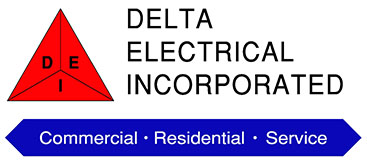Have you been considering switching your home over to a more energy-efficient lighting option? At Delta Electrical in Jackson, we understand that this can be a big decision. But while energy-efficient lighting such as LEDs do come with a higher upfront cost, they can save you money in more ways than one for years to come.
LED bulbs have a longer life span, meaning you replace your bulbs much less frequently which saves you money and puts less trash into the landfill. In addition, LED bulbs use about 75% less electricity than traditional incandescent light bulbs. This results in you saving money on your energy bill and reducing your carbon footprint.
In today’s blog post, we are going to answer some of the most common questions we hear about LED lighting. Continue reading to learn more and when you are ready to upgrade your home to energy-efficient lighting, contact the experienced team at Delta Electrical.
What Does LED Stand for?
LED stands for “light emitting diode.” LED’s work by producing light using a semiconductor and a process called electroluminescence. The result is a light bulb that is much more energy-efficient with a longer life span.
How Long Do LED Light Bulbs Last?
The life of an LED light bulb can vary slightly from manufacturer to manufacturer. Most LED light bulbs have a life span ranging from 20,000 to 30,000 hours. However, some premium LED bulbs may have life spans of up to 90,000 hours. The exact life expectancy of each bulb will most likely be printed on the package.
Are LED Lights Energy-Efficient?
Yes! LED lighting is very energy-efficient. Depending upon the specific bulb, each light can use 75% less energy or more than incandescent lighting. They also last about 25 times longer. The upfront cost of LED lighting may be slightly higher, but they save you money in more ways than one as time goes on.
Are LED Lights Brighter?
LED bulbs are not necessarily brighter than incandescent light bulbs. However, LED lights produce more lumens per watt than both incandescent and fluorescent light bulbs. So, LED lights require less watts to produce the same amount of lumens comparable to traditional light bulbs. If you had two 60-watt bulbs, and one was LED and one was incandescent, the LED bulb would be brighter.
Are LED Lights Expensive?
LED light bulbs have a higher upfront cost than traditional incandescent bulbs. However, LEDs have a much longer life span and will reduce your energy bills, so investing in the higher cost upfront can save you money in the long run.
Can LED Lighting be Used Outdoors?
Yes! LED light bulbs can be used outdoors. However, you should ensure that you choose a bulb that is wet-rated and safe for outdoor use. You’ll also want to make sure it is safe for use in enclosures.
Do LED Light Bulbs Dim Over Time?
LED bulbs are designed not to suddenly fail like a traditional incandescent light, but they may dim and become less bright over time. Most are rated for 20,000 hours or more of use, so your light bulb dimming should not be an immediate concern. Although LEDs dim over time, they will not flicker and go out on you unexpectedly like an incandescent bulb, and their life span is much longer.
What Does Lumens Mean?
Lumens measures how much light you are getting from a bulb. The higher the lumens, the brighter the bulb. Traditional incandescent bulbs were measured by their watts, but since LED lights do not require as many watts to create the same amount of light, lumens have become a common way to measure the brightness of a bulb.
Is it Normal for My LED Lights to Burn Out?
No. LED lights are designed not to fail suddenly the way incandescent bulbs do. If you notice your LED bulbs burning out, it could be caused by a number of reasons.
- You are using a regular LED bulb in a dimmable lighting fixture. You must choose an LED light that is labeled “dimmable” and it must be connected to an LED-compatible dimmer switch.
- There is too much voltage being sent to the light bulbs. This is a problem that can be solved by your local electrician.
- Bad connections can cause LED light bulbs to burn out as well. This is another concern that your electrician can identify and repair.
- You are using an LED in an enclosed fixture and the bulb is not rated to be used in an enclosed fixture. This can cause the bulb to overheat and burn out.
Install Energy-Efficient Lighting in Your Home
If you are interested in installing energy-efficient LED bulbs in your home, your local electricians at Delta Electrical can help. We are located in Jackson and provide electrical services for West Tennessee and Northern Mississippi, but are also licensed in 15 other states. Take a look at our location page to see if you are within our service area and contact Delta Electrical today to upgrade your home to energy-efficient lighting.

